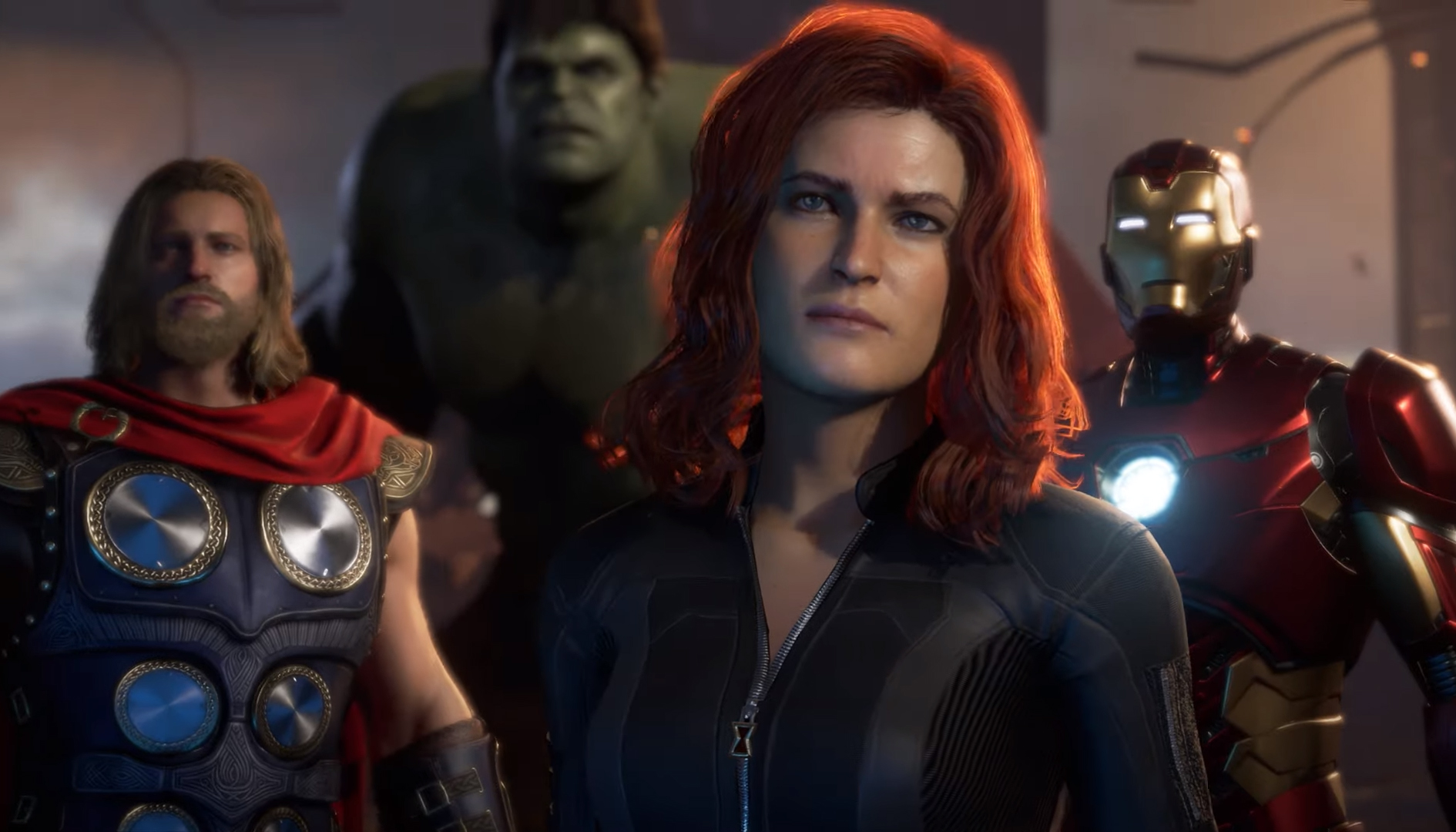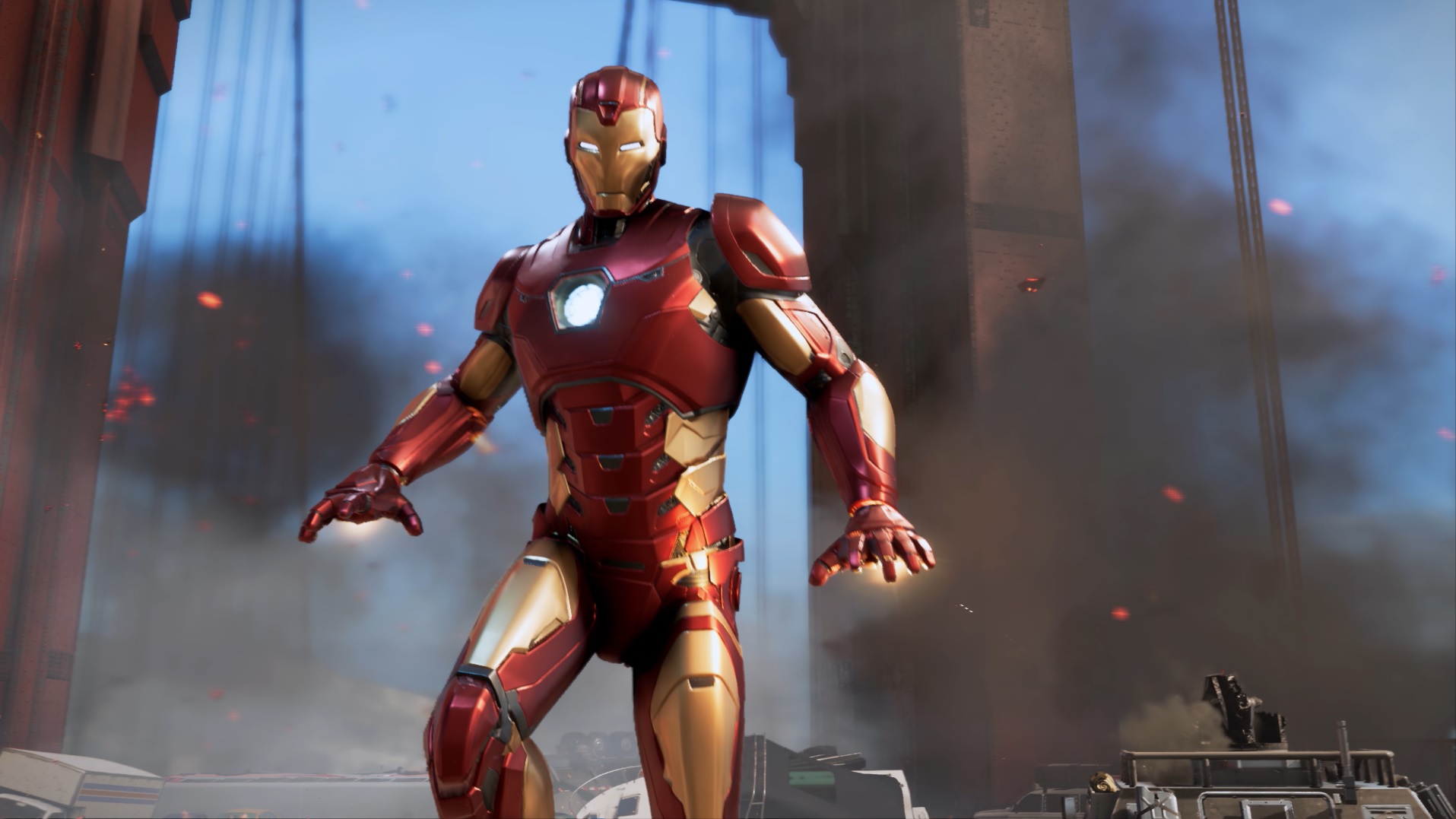What Marvel's Avengers can learn from the Batman: Arkham games after that E3 reveal
The Avengers game needs to feel like its own proposition.

When Rocksteady's Batman: Arkham Asylum was announced in August 2008 with a Game Informer cover, my reaction was a bit unfair. "Why make a Batman game focused on a story about the Joker in the shadow of The Dark Knight?," I remember thinking. Even with these amazing voice actors from the animated series, the idea of a Gears of War-esque chunky Batman who wasn't Christian Bale seemed...off-brand to me. You couldn't ignore what a huge cultural moment that film was, and this unrelated tie-in made its appearance within one month of its release. Here was this relatively low-profile developer, Rocksteady Games, taking its best shot at presenting an alternative version of the Caped Crusader. I wasn't totally convinced.
A little later in 2009, working on a long-deceased Xbox magazine, I took a preview build of the game home for a weekend. I reached the first Scarecrow hallucination sequence in the game and thought, holy shit. I've read Batman comics non-stop since I was 16, and this was the work of a team that just got the character and his world—and it was presented so confidently that I stopped thinking about the films pretty quickly. I was won over. Subsequent Arkham games escalated that ambition, and my first impression is now a distant memory. The Arkham series is perhaps the most comprehensive interpretation of Batman's universe that's ever travelled beyond the comics and animated series.
It's now over a decade later, and Square Enix's Avengers game was revealed to the world earlier this month for the first time. It's been dunked on since its E3 reveal reasonably hard for looking a bit...off-brand.
Marvel's Avengers (Dev. Crystal Dynamics.) pic.twitter.com/VrbnlM4zE1June 11, 2019
The reaction doesn't actually seem that bad by one measurable statistic—the ratio of dislikes on the trailer is way lower than, say, Call of Duty: Infinite Warfare's reveal was, suggesting most people are excited about what they saw. But there was definitely a sense to me that these playable superheroes looked like bootleg versions of the Marvel Cinematic Universe interpretations, highlighted by a slightly muted colour palette that leans in to a similarly realistic look. It was prevalent enough that lead creative director Shaun Escayg responded to fan criticism by explaining it won't be changing the designs, only tweaking them as the May 2020 release date nears (nor should its developers have to go through the hard work of redesigning them).
I had several problems with the game's reveal at E3, from the outside looking in. The part of the game spotlighted in the trailer and the behind-closed-doors demo was set during A-Day, a celebration of the Avengers that goes horribly wrong. The idea of Marvel's Avengers is you're reassembling the team, five years after this event, and we only really got quick snapshots of what that entails at the end of the reveal trailer. It didn't exactly blow me away (read my impressions, and interview with Crystal Dynamics' Scot Amos, here), with little in-game interaction between the Avengers, battles against identical-looking army men, and one boring boss fight weighed down by the game's inclusion of outdated-looking QTEs.
The chosen backdrop was also San Francisco—and the West Coast is certainly not an unheard of location for the Avengers historically—but it's not New York, which people closely associate with the characters, and Marvel generally. All these small things, on top of my first impression of the the character designs, collectively made the reveal feel not quite right to me.
Here's the lesson I think Square Enix should take from the Arkham games' journey to enormous critical success: it needs to be bolder and more confident in showing people why its take on the Avengers can live separately to those films. That's what the Arkham games did so well: Rocksteady treated its universe like it was the only one that matters. The Avengers reveal felt like it was trying to look like an adjacent proposition to the films (a very similar roster of characters, a helicarrier section, the similarities in character designs), and creating that comparison is going to be rough when you're up against one of the most successful movies ever made.
Keep up to date with the most important stories and the best deals, as picked by the PC Gamer team.
The E3 reveal was slight—much more was said about what the game is going to do, with a multi-year content plan and unseen multiplayer content, than what was shown. Why should people care for years? How will the game show them new sides of the characters that makes it a compelling alternative to the films? The developers were able to articulate that in press interviews fairly well, but the reveal footage felt out-of-sync with that larger vision.

Crystal Dynamics and Square Enix will no doubt show loads more in the coming months to help answer those questions. And they've announced the game during a particularly difficult age of instant reactions to blockbuster games, which is probably hard for developers and publishers to anticipate. Look at Respawn's clarification on Jedi: Fallen Order's difficulty yesterday, for example—blowing everyone away at first glance is difficult, and changing people's minds on their first impression seems like an even bigger challenge.
By the time Arkham City arrived in 2011, its lack of connection to the Christopher Nolan films didn't bother me one bit. I recognised the value of what each interpretation was trying to do—that's what Marvel's Avengers needs to do now. That E3 reveal hewed a bit too close to the MCU for me to get it out of my mind, and clearly it's not just me that feels that way.
What a dream Marvel's Avengers is selling: making your own Avengers team with friends, with many more heroes to come down the line at no extra cost, all on top of a singleplayer campaign. It's the biggest slam dunk waiting to happen in games right now. The next time we see it, I hope it gets slightly closer to selling me on that ambition, and its own versions of these characters.


